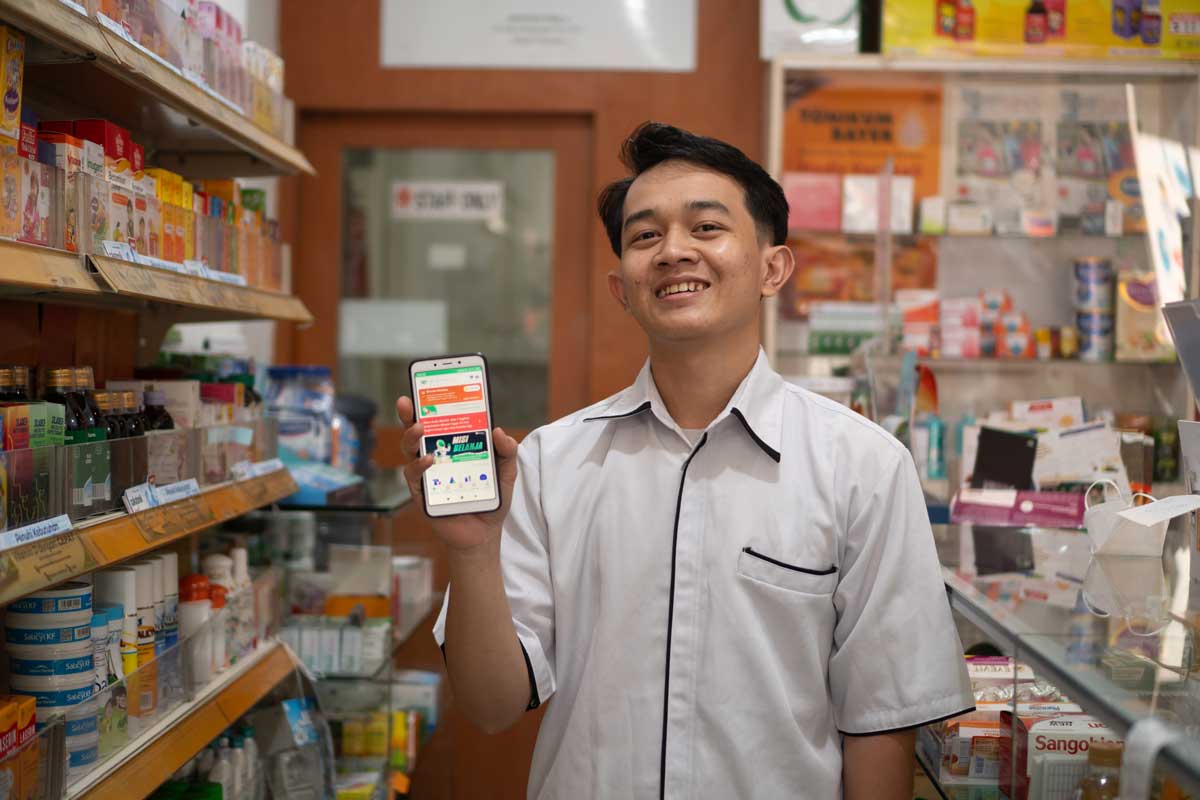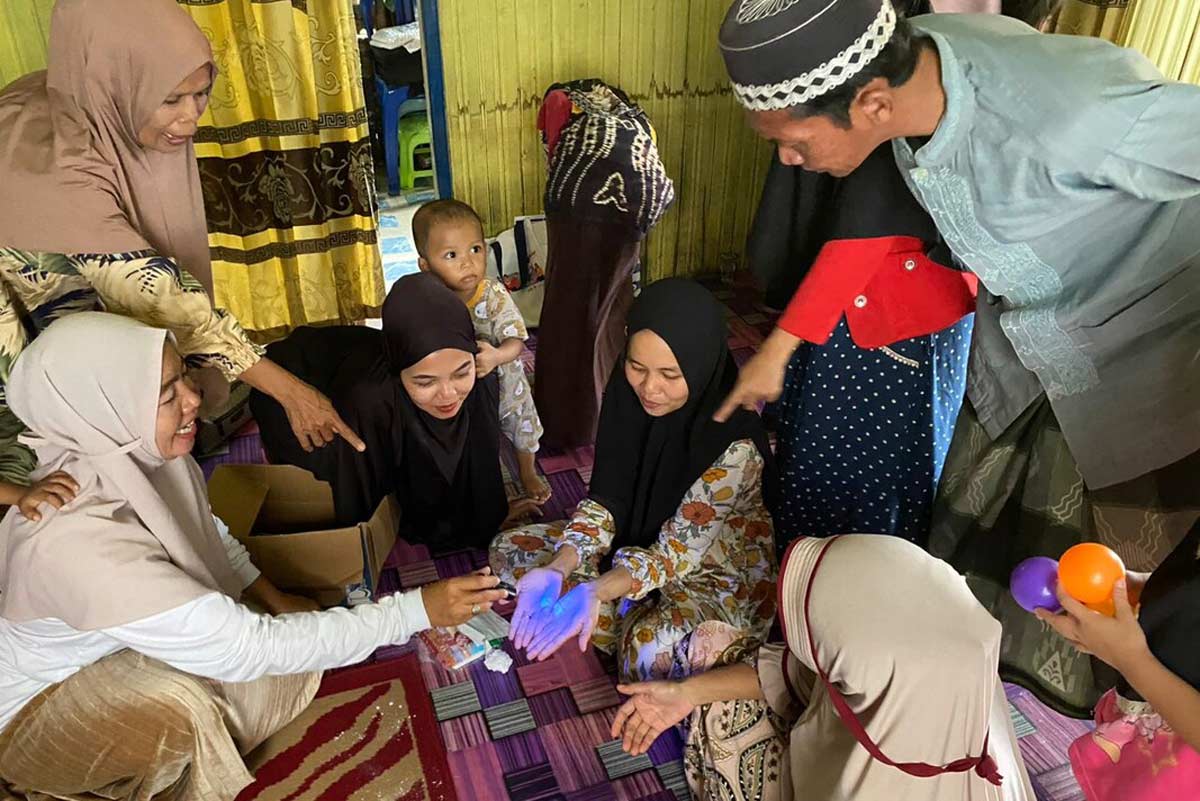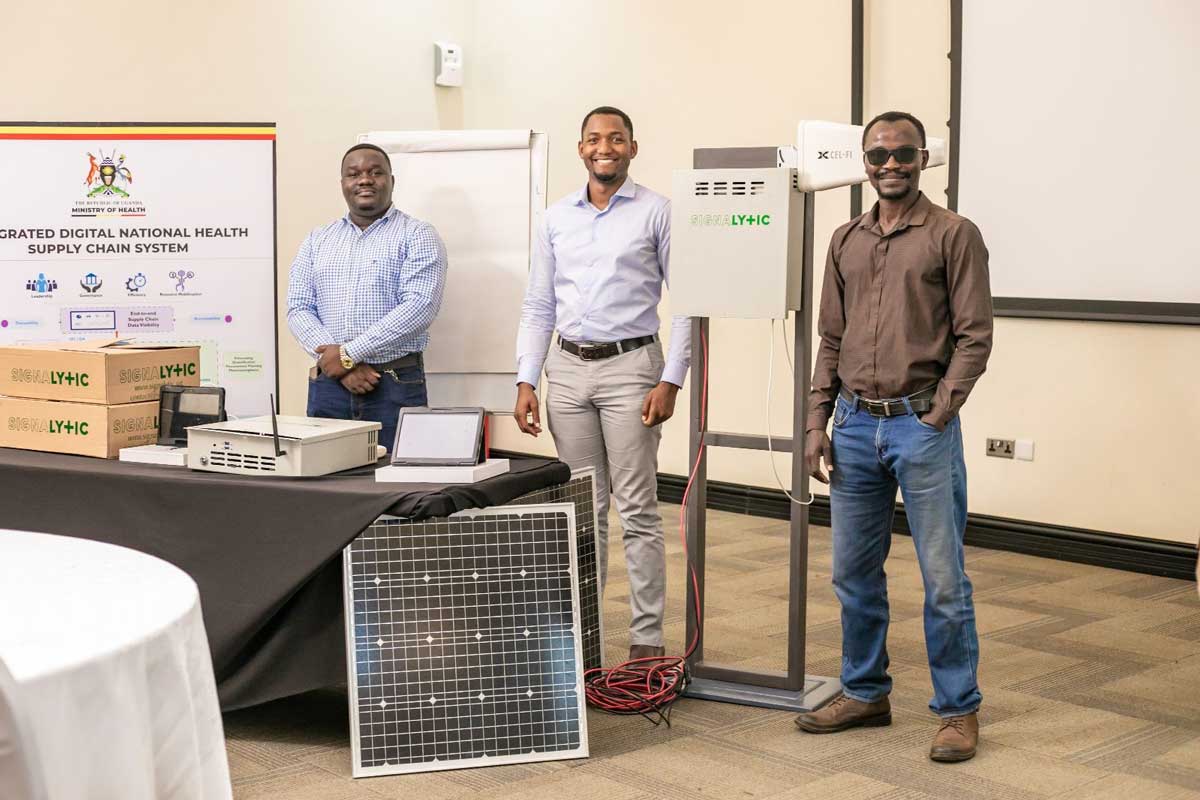Multi-armed bandits cooking up an AI storm
Could artificial intelligence revolutionise health care as we know it? VaccinesWork spoke to one Barcelona-based start-up that is on the crest of an AI wave.
- 29 October 2024
- 4 min read
- by Diane Abad-Vergara

“Imagine a scenario where patients not only feel valued but are eager to join in on their health care journey. It’s about humanising health care, making patients active partners rather than recipients of treatment.”
So says Sumiko Tanaka Pusch, Chief Operations Officer of Causal Foundry. The Barcelona-based start-up has been working since 2020 to bring cutting edge AI techniques to global health, in particular personalised patient care.
"At the heart of the approach is a commitment to personalisation that adapts clinical and behavioral interventions to each patient's unique clinical history, environmental context, habits, and preferences,” says Bertrand Pedersen, who works on Private Sector Partnerships and Innovation at Gavi, the Vaccine Alliance.
Causal Foundry, Inc. is one of four global health innovators chosen from a pool of over 100 applicants as the 2024 Gavi Innovation for Uptake, Scale and Equity in Immunisation (INFUSE) Pacesetters. These pacesetters will support Gavi with advanced technological solutions focused on building climate-resilient health systems in vulnerable countries worldwide.
“By integrating AI into our health care practices, we are on a journey to deliver more timely and relevant interventions that resonate with the patients we serve, making their health care a more personal and engaging experience.”
- Kathrin Schmitz, Chief Programmes and Impact Officer at African NGO mothers2mothers
Multi-armed bandits
One AI technique employed by the company is known in the industry as “multi-armed bandits”. Think of these bandits as the health care version of skilled chefs navigating a bustling kitchen, choosing the right ingredients and techniques to serve the best dish tailored to each diner’s taste.
For example, a digital tool designed for patients living with HIV enables tailored reminders and motivational messaging, ensuring that interventions resonate with individual user preferences and behaviours.
These are part of a comprehensive machine-learning approach that Causal Foundry is using to help improve health care. Their AI solutions can be applied to any range of software or application to learn as much as possible about the user and work to then serve up content that is useful and timely, such as recommendations to a health worker on treatment of a patient or a prompt for a patient to help self-manage their treatment.
As health care workers or patients engage with any given health care platform or app, the back-end information is integrated with AI machine learning, and a near real-time feedback loop is created, much like users interacting with Amazon and Netflix, where their preferences inform recommendations. “Because you watched this, you may like that. Because you bought those, you may be interested in these. Because you checked this patient for X, you may also consider doing Y.”
Customised solutions
By harnessing this approach among other machine learning and probabilistic AI methodologies (a probabilistic model makes decisions based on probabilities or likelihoods), challenges in health care decision-making can be supported with predictive analytics to provide customised solutions for individual patients.
So, what exactly do AI solutions like these multi-armed bandits do? Causal Foundry’s platform collects valuable data from wearable devices and electronic health records to create a mix of clinical and behavioural insights.
The data is then cleaned, processed and modelled to generate tangible advice for the end user. The platform integrates into existing digital tools, using them as a direct communication channel with the workers, providing them with timely, personalised interventions, such as recommendations or incentives.
“Every patient has unique histories and needs,” says Kathrin Schmitz, Chief Programmes and Impact Officer at African NGO mothers2mothers, which has worked with Causal Foundry. “By integrating AI into our health care practices, we are on a journey to deliver more timely and relevant interventions that resonate with the patients we serve, making their health care a more personal and engaging experience.”
Have you read?
Focus on equity
The impact of this technology has enormous potential in resource-limited areas, where health workers have to make the most out of every resource available. Causal Foundry incorporates equity-focused objectives within its framework, ensuring decision-making enhances health care delivery across diverse populations.
“By weaving fairness-oriented strategies – like minimising disparity and maximising patient welfare – into our interventions, we’re not just improving health outcomes,” explains Pusch. “We’re ensuring that every patient gets a fair chance at receiving the care they need, regardless of their background.”
The approach has already impacted health care delivery in low- and middle-income countries, for example in Indonesia through a partner that supplies drugs to over 8,000 pharmacies (SwipeRx) and South Africa through a partner managing community health workers (CHARM).
Causal Foundry also works to improve patient engagement in clinical trials by designing decentralised and adaptive studies that feel more like community events and less like rigid medical experiments. Causal Foundry’s technology also incorporates game-like elements – like earning points or rewards – into health care tools.
The fusion of artificial intelligence and equitable health care delivery has been rolled out in partnership with more than 12 organisations in South Africa, Nigeria, Sierra Leone, Angola, Kenya, Tanzania, Ghana, India and Indonesia.








